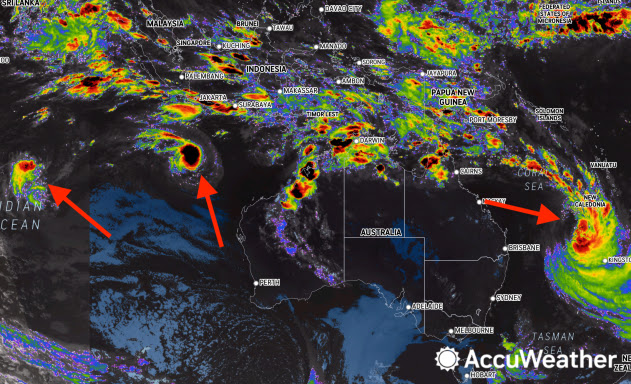My blog of 21 June 2011 was entitled: A WORLD POPULATION OF 7 BILLION. I went on to say:
- If there has been any criticism of my books, it is that I have ignored the most important parameter: the world population.
- I didn't have a full chapter dedicated to this topic in any of my publications, and not one of my 100+ Huffington Post articles treated this subject.
- Why? ...mostly because there was not much I could add to the subject than to say that population growth will reverse once the world becomes economically prosperous, for then, the central government will have something like Social Security in place and parents won't need to have many children to take care of them at old age.
It took us from our beginnings in Africa, perhaps 300,000 years ago, to finally reach a population of 1 billion in 1804. 218 years later, we last year reached 8 billion. However, the good news is that the time it takes to double our population is finally increasing.
What about the future? Depends on who you ask.The United Nations Department of Economics and Social Affairs gives an 80% confidence interval of 10-12 billion people by the end of this century.- The total number of global births is currently around 140 million/year, projected to soon decline to 126 million/year by 2100.
- The total number of global deaths is 57 million/year (meaning the world is increasing by 83 million people annually), and will increase to 121 million by 2100.
- Thus, the human population will most likely continue to increase into the next century.
- Our median age in 2020 was 31 years.
Much of the popular discussion about population began with Stanford's Paul Ehrlich's Population Bomb in 1968. Well, frightful famines, pollution cataclysms and ecological collapse did not occur, and Humanity survived. However, till today, Ehrlich has lamented the course of development where the rich now particularly control the resources, as epitomized by the "world destroyer" gatherings in Davos.
In that same 1968, the Club of Rome was founded in Italy, and they commissioned a team from MIT to write The Limits to Growth, published in 1972. Sold 30 million copies in 30 languages and is the most best-selling environmental book ever. The latest follow-up was Limits and Beyond published last year. Can you believe that was 50 years ago. And can you anticipate the future in 2072?
So, anyway, what population can our planet sustain?
- The World Wildife Fund said that occurred in 1970 when we had 3.5 billion.
- One view from the state of Washington is that in 1991 one salmon species was endangered. Today, 14, crowded out by habitat destruction, global warming and pollution. At one time they had a salmon season. Now? Not even one day...perhaps a few hours/year.
- Paul Ehrlich (who is now 90 years old): Too many people, too much consumption and growth mania. To maintain our lifestyle for the entire planet, you'd need five more Earths.
- Stanford colleague Tony Barnosky indicated: There are five times in Earth's history where we had mass extinctions. And by mass extinctions, I mean at least 75%, three quarters of the known species disappearing from the face of the Earth. Now we're witnessing what a lot of people are calling the sixth mass extinction where the same thing could happen on our watch.
- And further from Ehrlich: I know there's no political will to do any of the things that I'm concerned with, which is exactly why I and the vast majority of my colleagues think we've had it; that the next few decades will be the end of the kind of civilization we're used to.
So you will need to know the age of mother and father. Here is an interesting study tracing first birth of child from parents going back 250,000 years. One definition seems not to be approaching 30 years. But that what about the rest of the family? So, therefore, a period of 20-30 years seems about right.
There is yet another generation term in the social context.
- The Greatest Generation: those who lived through the Great Depression and fought in World War II. There is that 1998 book by Tom Brokaw.
- The Silent Generation: coined in 1951 by Time magazine, spans roughly 17 years for those born from 1924/5 to 1942/45.
- The U.S. Census Bureau say Baby Boomers are those born between 1946 and 1964, a span of 18 years.
- Boomers I were born between 1946 and 1954, while Boomers II (sometimes referred to as Generation Jones) came between 1955 and 1965.
- Douglas Coupland used the term Generation X in his 1991 book, those born between 1965 and 1980, a span of 15 years. Also sometimes known as The Lost Generation.
- Sometimes called Echo Boomers, or Generation Y, but more recently called Millennials, these include those born between 1981 and 1996.
- The most recent is Gen Z or Zoomers, almost called iGeneration, includes everyone born from 1997 to 2010.
- However, a new term has cropped up, Generation Alpha, for those born from 2010.
- There is a call to pick a new generation every 15 years, so the sense is that the next one will be Beta from 2025 to 2039.
Our Seabourn cruise from Sydney to Honolulu is soon to come, and ocean storms are picking up surrounding Australia. Cyclone Gabrielle is flooding New Zealand, one of our stops, said to be the most powerful to hit the country in 25 years. Peaked last week at Category 3, has weakened into a tropical storm, but with a lot of rain.
Not a threat to our cruise, but on the other side of Australia are two storms, one, Cyclone Freddie, was up to 115 MPH last week, weakened, strengthened again to 115 MPH yesterday, and seems headed for Mauritius.
Well, anyway:-
























Comments
Post a Comment